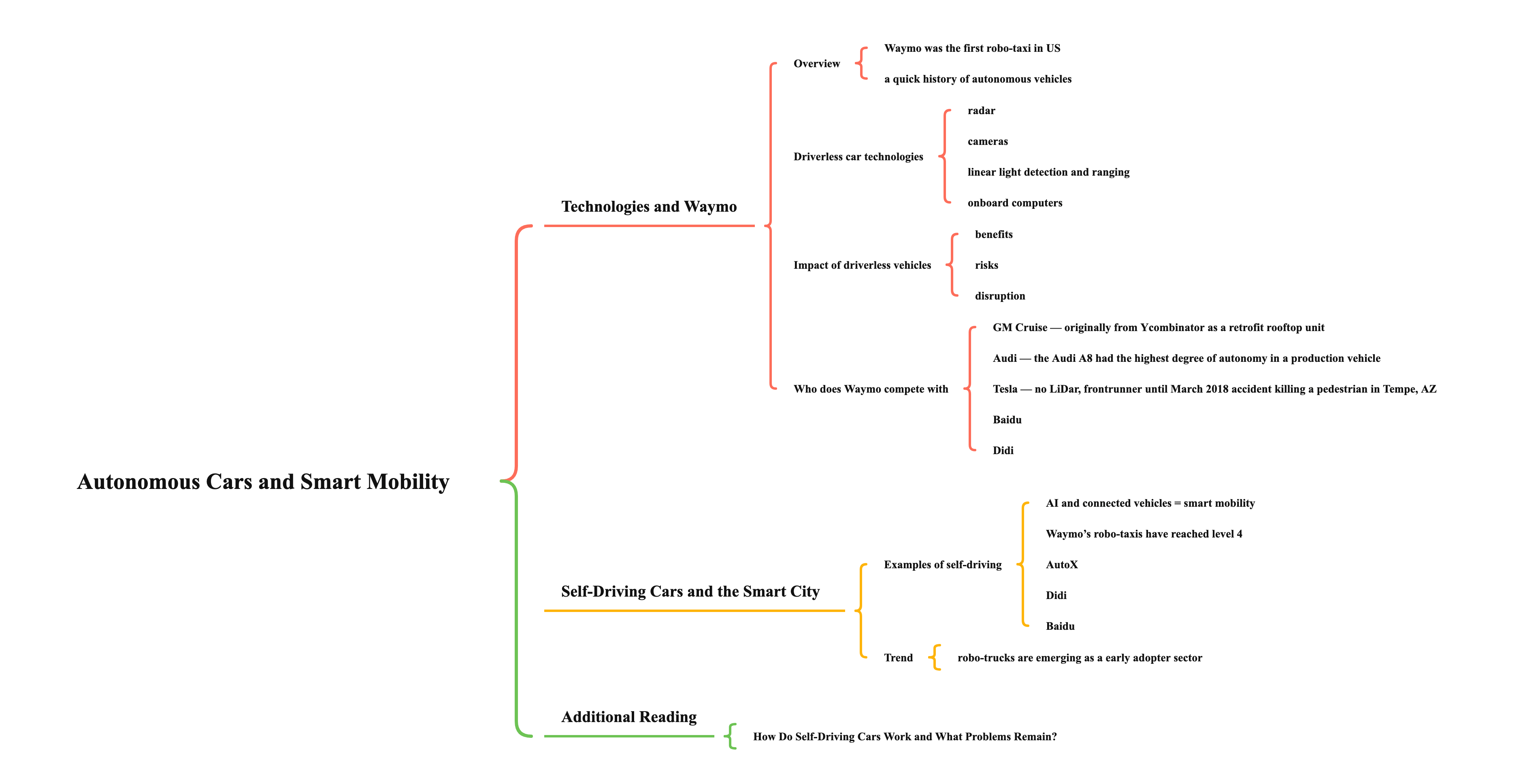2 minutes
ECOM7121 Autonomous Cars and Smart Mobility

Technologies and Waymo
Overview
- Waymo was the first robo-taxi in US
- a quick history of autonomous vehicles
- history of driverless or automated cars
- the DARPA grand challenge
- levels of automation achieved
Driverless car technologies
- radar
- cameras
- lidar light detection and ranging
- onboard computers
Impact of driverless vehicles
- benefits
- risks
- disruption
Who does Waymo compete with
- GM Cruise — originally from Ycombinator as a retrofit rooftop unit
- Audi — the Audi A8 had the highest degree of autonomy in a production vehicle
- Tesla — no LiDar, frontrunner until March 2018 accident killing a pedestrian in Tempe, AZ
- Baidu
- Didi
Self-Driving Cars and the Smart City
Examples of self-driving
- AI and connected vehicles = smart mobility
- Waymo’s robo-taxis have reached level 4
- AutoX
- the Chinese government has invested in AVs and 5G for smart cities
- AutoX has 100 RoboTaxis in Shanghai in the Jiading district
- the Chinese RoboTaxis are trained on relatively congested traffic streets with urban scenarios
- Didi
- large user and driving database in Chinese cities
- public-private partnership with Chinese city governments
- Didi integrates B2G smarter city traffic management systems and traffic lights/sensor systems with its RoboTaxi services
- Didi’s “transportation brain” has been pilot tested in 20 Chinese cities with municipal government support
- Baidu
- in March 2018, Chinese search giant Baidu became the first player to operate driverless vehicles on public roads in China
- Baidu is working with BAIC to produce Level 4 AVs by 2021
- Ford has used Baidu’s software self-driving system called Apollo
Trend
- robo-trucks are emerging as a early adopter sector